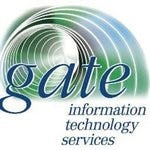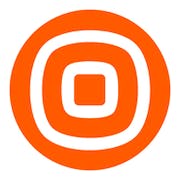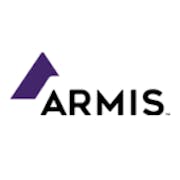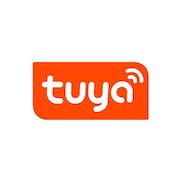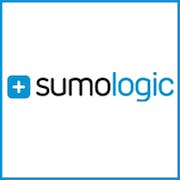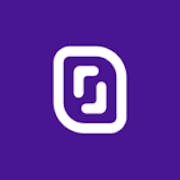The world’s connectivity is expanding at an unprecedented rate, and it is near impossible to keep up with the plethora of devices in circulation. The advent of the Internet of Things (IoT) has presented countless opportunities and innovations for businesses globally. The IoT, as we know it today, is a network of physical objects embedded with sensors, software, and other integrations, which enables these devices to connect and exchange data. As IoT technology grows increasingly ubiquitous, it is crucial for businesses to keep pace with ever-evolving software solutions. In this buyers guide, we will explore the latest and most innovative IoT software solutions on the market and provide you with all the information you need to make an informed decision for your business.
What is Internet of Things (IoT) Software
The world is increasingly becoming more connected, and every day new devices are being created that can be controlled and monitored over the internet. This is where the Internet of Things (IoT) comes in, making it possible to collect data from devices and analyze it to improve business operations. IoT software is a technology that enables communication between devices and delivers data from the sensors to the cloud for analysis. It is used to collect data from remote devices, analyze the data collected, and then provide real-time insights that can be used to make informed decisions. IoT software is critical for companies that want to improve their operations by increasing efficiency, optimizing processes, and reducing costs. Some of the common use cases of IoT software include: - Industrial automation: Many manufacturing processes need a high level of automation to improve efficiency, reduce errors, and cut costs. By using IoT software, factory automation can be achieved, resulting in optimized production and better overall quality control. - Asset tracking: Companies use IoT software to track and monitor their valuable assets, such as vehicles, equipment, and inventory. This helps avoid theft or loss, and also makes it easy to locate and deploy the resources where they are needed. - Smart homes: IoT software is used to automate, monitor, and control home appliances such as thermostats, security systems, and lighting. Homeowners can use their smartphones to control their homes from anywhere in the world. - Agriculture: IoT software is used in precision farming to collect data from sensors that monitor soil moisture, temperature, and humidity. This helps farmers to optimize irrigation, fertilization, and planting, and consequently improve crop yield. A wide variety of companies across different industries use IoT software. Some of the common companies using IoT software include: - Manufacturing companies: These companies use IoT software to automate their production lines and make their factories more efficient. - Transportation companies: They use IoT software to track and optimize the movement of goods, vehicles, and assets. - Healthcare providers: They use IoT software to remotely monitor patient health, improve medication management, and streamline operations. - Retailers: They use IoT software to track inventory levels, manage the supply chain, and optimize the customer experience. In conclusion, IoT software is a critical technology that enables companies to collect and analyze data from the devices on their network. Its use leads to improved efficiency, reduced costs, and better decision-making. It is used across different industries, including manufacturing, transportation, healthcare, and retail. With increasing adoption of IoT technology, companies that are quick to adopt IoT software will be better positioned to stay ahead of their competitors.
Benefits of Internet of Things (IoT) Software
Welcome to the world of the Internet of Things (IoT), an innovation that's rapidly transforming the way businesses operate in the digital age. IoT is an ecosystem of interconnected devices and machines that collect, share, and analyze data in real-time. IoT software enables businesses to tap into the potential of these smart and connected technologies, allowing them to boost operational efficiency, improve productivity, and enhance customer experiences. Here are the main benefits of IoT software for businesses: 1. Improved operational efficiency: IoT software can optimize workflows, automate processes, and reduce human intervention, leading to increased accuracy and consistency and significantly cutting down on operational costs. 2. Enhanced data analytics: IoT software can collect vast amounts of data, which can be analyzed in real-time to gain insights into operations, customer behavior, market trends, and more, allowing businesses to make informed decisions that drive growth. 3. Greater customer satisfaction: IoT software can help businesses provide a personalized and seamless customer experience by leveraging real-time data to identify customer needs, preferences, and behavior, and offering tailored solutions that enhance customer satisfaction. 4. Increased revenue streams: IoT software can enable businesses to develop new revenue streams by creating innovative services and products that leverage the capabilities of IoT technologies. 5. Increased safety and security: IoT software can help improve safety and security protocols by monitoring equipment performance, detecting anomalies, and alerting businesses in real-time to prevent accidents or security breaches. In conclusion, IoT software presents a massive opportunity for businesses to revolutionize the way they operate, engage with customers, and create new revenue streams. By leveraging the power of IoT software, businesses can enhance efficiency, improve decision-making, and drive growth.
Features of Internet of Things (IoT) Software
Internet of Things (IoT) software is a key component in enabling devices and applications to connect, communicate and exchange data with each other. These IoT software are purpose-built applications, platforms, and middleware that allow organizations to gain greater visibility across their devices, monitor device health, optimize usage, and automate critical business processes. Here are 10 common features that IoT software often offers: 1. Device Management: One of the key features of IoT software is their ability to manage and control devices remotely. This includes device activation, configuration, firmware updates, security assessments, and more. 2. Real-Time Data Analysis: IoT software enables businesses to capture and analyze valuable data from IoT devices in real-time. This helps them gain real-time insight and make better decisions based on data-driven insights. 3. Cloud Integration: IoT software typically integrates with cloud platforms like AWS, Azure, or Google Cloud to store and process the data. These cloud integrations provide businesses with greater agility, scalability, and security. 4. Machine Learning: Machine learning is often used in IoT software to sift through massive amounts of data to identify patterns, anomalies, or opportunities that can inform business decisions. 5. Predictive Analytics: Some IoT software can use predictive analytics to forecast future trends and help businesses make better decisions, optimize resources, and avoid costly failures. 6. Data Visualization: IoT software often provides data visualization capabilities through dashboards or reports to help visualize real-time device data in a user-friendly format. This allows business users to quickly spot issues and take action as needed. 7. Security Management: IoT software includes security features that protect devices and the data they collect. These features can include encryption, access control, and secure communications to mitigate potential security threats. 8. Multi-Platform Support: IoT software typically supports multiple operating systems and devices, including iOS, Android, and Windows. This allows businesses to monitor and manage their devices from a centralized system, regardless of the device platform. 9. Integration with 3rd Party Systems: Many IoT software solutions can integrate with third-party systems such as enterprise resource planning (ERP), supply chain management (SCM), and customer relationship management (CRM) systems for a complete end-to-end solution. 10. Proactive Maintenance: IoT software can monitor and analyze device health data in real-time. This proactively alerts businesses when a device is failing or about to fail and provides early warning signals to avoid lost productivity, revenue, and customer satisfaction. In conclusion, IoT software offers a comprehensive solution for businesses to manage and optimize their connected devices. With features such as cloud integrations, real-time data analysis, security management, and proactive maintenance, businesses can better manage their IoT ecosystem and gain valuable insights from data to make better decisions.
Considerations of Internet of Things (IoT) Software
In a world where connectivity and data are increasingly crucial for business operations, Internet of Things (IoT) technology has become a game-changer. IoT software presents a unique opportunity for businesses to harness data collected from internet-connected devices to optimize processes, improve decision-making, and enhance customer experiences. However, with so many options in the market, businesses need to be strategic in choosing the right IoT software that meets their specific needs. Here are several factors businesses can consider when purchasing IoT software. 1. Security - With cyber threats on the rise, it's essential to choose IoT software that prioritizes security. The software should feature strong encryption, data authentication, and access control to prevent unauthorized access. Additionally, it should undergo frequent security updates to stay ahead of potential threats. 2. Scalability - The IoT market is projected to grow at an exponential speed, and businesses need to choose software that can scale effectively to accommodate future expansion. The software should allow for the integration of new devices and data streams without requiring extensive reconfiguration. 3. Compatibility - The software should work seamlessly with the business's existing processes, hardware, and software. Before purchasing an IoT platform, consider how it will integrate with other systems and ensure it's compatible with the necessary programming languages and protocols. 4. Analytics Capabilities - The ability to analyze the vast amounts of data generated by IoT devices is crucial to deriving meaningful insights. Businesses should look for IoT software that offers sophisticated, intuitive analytics tools that can process, visualize, and glean valuable insights from data in real-time. 5. Support and Training - Good customer support and comprehensive training are essential when investing in IoT software. The software provider should have an excellent reputation for customer service and offer robust training resources to help employees learn how to use the platform effectively. In conclusion, investing in IoT software can revolutionize the way businesses operate, improving efficiency, and driving growth. However, choosing the right IoT software can be challenging, particularly given the vast array of options available in the market. By considering factors such as security, scalability, compatibility, analytics capabilities, and support and training, businesses can make informed decisions that will help them leverage the full potential of IoT technology.
Software Trends for Internet of Things (IoT) Software
As we approach 2023, the Internet of Things (IoT) continues to be a dominant technological trend, and new developments in software are shaping its future. The growth of IoT has necessitated a discussion on the software-side of things, and businesses need to be aware of the most important trends shaping IoT software today. One of the most significant trends is the adoption of blockchain technology, which can help ensure the security and integrity of IoT data. Smart cities are also poised to change the game, with intelligent infrastructure driving efficiency and cost savings. 5G-powered IoT devices will become increasingly important, as the global rollout of 5G networks accelerates. Additionally, traffic management systems will use IoT sensors and software to reduce congestion and improve safety on the roads. IoT-empowered AI applications are changing the game across industries and will continue to do so in 2023 and beyond. Digital twins, or virtual replicas of physical objects or systems, are enabling predictive maintenance and troubleshooting, among other use cases. Voice-activated IoT devices will become even more mainstream, revolutionizing user experiences and intuitive control. As IoT continues to proliferate, cybersecurity remains a top concern. Leading companies are focusing on IoT security, ensuring that devices and systems are secure and protected from hacking and other threats. Finally, edge computing and the metaverse, both exciting developments in their own right, will revolutionize data processing and immersive digital experiences. In summary, IoT software is rapidly evolving, and businesses need to keep up with the trends. Blockchain technology, smart cities, 5G, traffic management, IoT-AI applications, digital twins, voice-activated devices, IoT security, edge computing, and the metaverse are just some of the developments shaping the future of IoT software. As companies increasingly rely on IoT to drive success, understanding and adopting these trends will be crucial for staying ahead of the curve.

